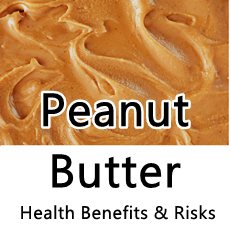Eating Slowly is Healthy
Eat slowly for a better and healthier life
Fact Checked
×All the content published in our website is fact checked to validate its accuracy.
Visit our guidelines web page to learn more about our strict processes regarding how we review our content's sources: reliable and reputable journals, media websites, universities, colleges, organizations, and professionals.
Our articles are based on scientific evidence, and the references are included in their footnotes, which are clickable links to sound scientific papers.
First published: 23. Dec.2024
Overview
Eating slowly could have many health benefits. Several studies have found that those who eat fast have a higher risk of diabetes and obesity; as well as high blood lipids and gases. Eating slowly, on the other hand, promotes satiety, and lowers the risk of those diseases.
References and Further Reading
(1) Saito Y, Kajiyama S, Nitta A, Miyawaki T, Matsumoto S, Ozasa N, Kajiyama S, Hashimoto Y, Fukui M, Imai S., (2020). Eating Fast Has a Significant Impact on Glycemic Excursion in Healthy Women: Randomized Controlled Cross-Over Trial. Nutrients. 2020 Sep 10;12(9):2767. doi: 10.3390/nu12092767. PMID: 32927895
(2) Otsuka R, et al., (2006). Eating fast leads to obesity: findings based on self-administered questionnaires among middle-aged Japanese men and women. J Epidemiol. 2006 May;16(3):117-24. doi: 10.2188/jea.16.117. PMID: 16710080
(3) Shah M, Copeland J, Dart L, Adams-Huet B, James A, Rhea D. , (2014). Slower eating speed lowers energy intake in normal-weight but not overweight/obese subjects. J Acad Nutr Diet. 2014 Mar;114(3):393-402. doi: 10.1016/j.jand.2013.11.002. Epub 2013 Dec 30. PMID: 24388483
(4) Hawton K, Ferriday D, Rogers P, Toner P, Brooks J, Holly J, Biernacka K, Hamilton-Shield J, Hinton E., (2018). Slow Down: Behavioural and Physiological Effects of Reducing Eating Rate. Nutrients. 2018 Dec 27;11(1):50. doi: 10.3390/nu11010050. PMID: 30591684
(5) Barrea, L., Vetrani, C., Verde, L. et al., (2021). "Forever young at the table": metabolic effects of eating speed in obesity. J Transl Med 19, 530 (2021). https://doi.org/10.1186/s12967-021-03199-1
(6) Paz-Graniel I, Babio N, Mendez I, Salas-Salvado J., (2020). Association between Eating Speed and Classical Cardiovascular Risk Factors: A Cross-Sectional Study. Nutrients. 2019 Jan 4;11(1):83. doi: 10.3390/nu11010083. PMID: 30621124
(7) Saito M, Shimazaki Y, Nonoyama T, Tadokoro Y., (2020). Number of Teeth, Oral Self-care, Eating Speed, and Metabolic Syndrome in an Aged Japanese Population. J Epidemiol. 2019 Jan 5;29(1):26-32. doi: 10.2188/jea.JE20170210. Epub 2018 Jun 16. PMID: 29910228
(8) Hamada Y, Hayashi N., (2021). Chewing increases postprandial diet-induced thermogenesis. Sci Rep. 2021 Dec 9;11(1):23714. doi: 10.1038/s41598-021-03109-x. Erratum in: Sci Rep. 2021 Dec 23;11(1):24483. doi: 10.1038/s41598-021-04257-w. PMID: 34887466
About this Article
Eating Slowly is Healthy, A. Whittall
©2024 Fit-and-Well.com. First Published: 23.Dec.2024. Update scheduled for 23.Dec.2027. https://www.fit-and-well.com/diet-food/eating-slowly-is-healthy.html
Tags: eating, diabetes, cholesterol, mindfulness, weight, bloating, gases



